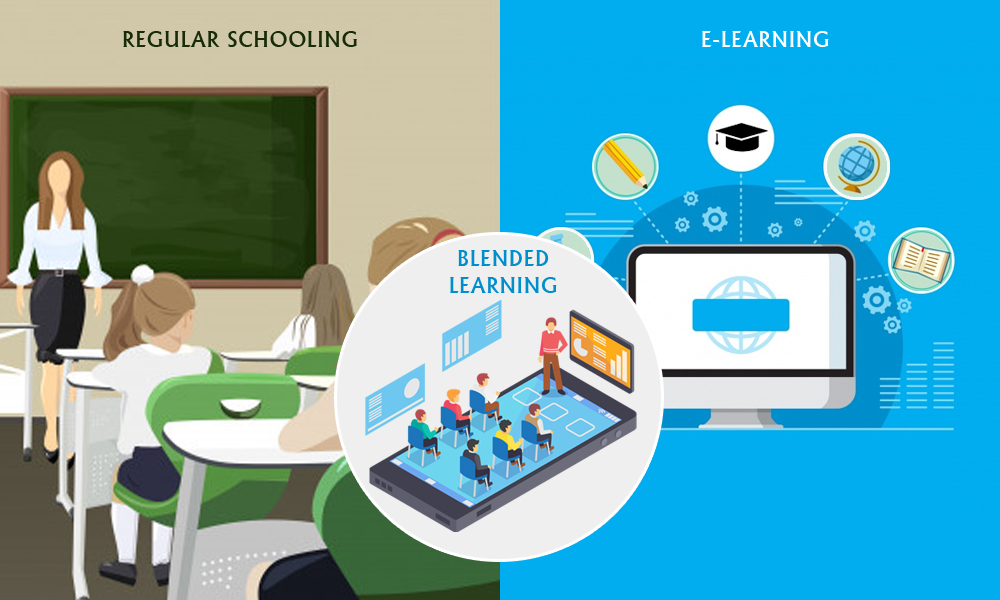
JAKARTA, inca.ac.id – Expertise exchange is a transformative approach that fosters collaboration among professionals, particularly within academic and campus environments. By facilitating the sharing of knowledge, skills, and experiences, expertise exchange empowers individuals to enhance their capabilities, drive innovation, and build robust professional networks. This article explores the significance of expertise exchange in campus collaboration, its benefits, and practical strategies for implementing it effectively.
The Importance of Expertise Exchange in Campus Collaboration

1. Enhanced Learning Opportunities
Campus collaboration provides a unique platform for expertise exchange, allowing students, faculty, and industry professionals to engage in meaningful discussions. This environment encourages diverse perspectives, enriching the learning experience and promoting a culture of continuous improvement.
2. Skill Development
Through expertise exchange, individuals can acquire new skills and knowledge that are essential for their professional growth. Collaborative projects, workshops, and seminars enable participants to learn from one another, enhancing their expertise and preparing them for future challenges in the workforce.
3. Fostering Innovation
When professionals from various disciplines collaborate, they bring different viewpoints and ideas to the table. This diversity fosters innovation, as participants can brainstorm creative solutions to complex problems. Expertise exchange encourages out-of-the-box thinking, leading to groundbreaking projects and initiatives.
4. Networking and Relationship Building
Engaging in expertise exchange on campus allows individuals to build valuable professional networks. Collaborating with peers, faculty, and industry experts creates connections that can lead to mentorship opportunities, internships, and job placements. These relationships are essential for career advancement and personal growth.
5. Increased Confidence and Leadership Skills
Participating in expertise exchange initiatives helps individuals develop confidence in their abilities. By sharing their knowledge and skills with others, participants reinforce their expertise and enhance their communication and leadership skills. This empowerment encourages them to take on more significant roles and responsibilities in their careers.
Strategies for Implementing Expertise Exchange on Campus
1. Organize Interdisciplinary Workshops
Hosting interdisciplinary workshops allows students and professionals from various fields to collaborate and share their expertise. These workshops can cover topics such as project management, leadership, and technical skills, providing participants with valuable insights and practical knowledge.
2. Create Collaborative Research Projects
Encouraging collaborative research projects among students, faculty, and industry partners promotes expertise exchange. By working together on research initiatives, participants can share their knowledge and skills, leading to innovative findings and advancements in their respective fields.
3. Establish Mentorship Programs
Mentorship programs can facilitate expertise exchange by connecting experienced professionals with students seeking guidance. Mentors can share their knowledge, provide career advice, and help mentees navigate challenges, fostering personal and professional growth.
4. Utilize Online Collaboration Tools
Incorporating online collaboration tools can enhance expertise exchange by enabling participants to connect and share knowledge beyond physical boundaries. Platforms like discussion forums, project management tools, and virtual meeting software facilitate communication and collaboration among campus professionals.
5. Encourage Student-Led Initiatives
Empowering students to lead initiatives focused on expertise exchange can foster a culture of collaboration on campus. Student organizations can host events, workshops, and networking opportunities that encourage knowledge sharing and skill development among peers.
Personal Insights on Expertise Exchange in Campus Collaboration
1. Learning from Diverse Perspectives
My experience with expertise exchange on campus has been incredibly enriching. Collaborating with peers from different disciplines has exposed me to diverse perspectives and approaches. For instance, working with engineering students on a project allowed me to gain insights into technical problem-solving that I wouldn’t have encountered in my field.
2. Building a Supportive Community
Engaging in expertise exchange has helped me build a supportive community of professionals and peers. Sharing knowledge and experiences creates a sense of camaraderie, making it easier to seek advice and assistance when facing challenges.
3. Enhancing Problem-Solving Skills
Collaborating with others has significantly improved my problem-solving skills. When faced with complex issues, discussing them with peers often leads to innovative solutions that I might not have considered on my own. This collaborative brainstorming has been invaluable in overcoming obstacles.
4. Gaining Confidence Through Sharing
Sharing my expertise with others has boosted my confidence tremendously. Whether leading a workshop or mentoring a fellow student, these experiences reinforce my knowledge and remind me of my capabilities. This newfound confidence encourages me to pursue leadership opportunities and tackle more significant challenges.
5. Commitment to Lifelong Learning
Participating in expertise exchange has instilled a commitment to lifelong learning. I actively seek out opportunities to learn from others, whether through formal workshops, informal discussions, or collaborative projects. This dedication to growth has enriched my academic and professional journey.
Conclusion
Expertise exchange is a vital component of campus collaboration that empowers professionals and students alike. By fostering an environment of knowledge sharing and collaboration, campuses can enhance learning opportunities, drive innovation, and build valuable networks. Implementing strategies such as interdisciplinary workshops, collaborative research projects, and mentorship programs can create a culture of expertise exchange that benefits all participants. As we embrace the power of collaboration, we unlock new opportunities for growth and success in our professional lives.
Improve Your Abilities: Explore Our content on Knowledge
Take a Look at Our Latest Article on Learning Tools: Enhancing Productivity Through Smart Platforms!
#career tips #collaboration #expertise exchange #networking #professional growth
Related Posts
 Berpikir Sistematis: Skill Wajib Mahasiswa Masa Kini
Berpikir Sistematis: Skill Wajib Mahasiswa Masa Kini
 Pembelajaran Hybrid: Wajah Baru Dunia Kampus di Tengah Perubahan Zaman
Pembelajaran Hybrid: Wajah Baru Dunia Kampus di Tengah Perubahan Zaman
 Kalkulus Lanjut: Pilar Pemahaman Matematika Tingkat Tinggi
Kalkulus Lanjut: Pilar Pemahaman Matematika Tingkat Tinggi
 Paramedicine Skills: Providing Urgent Care in College—What I Wish I Knew
Paramedicine Skills: Providing Urgent Care in College—What I Wish I Knew



